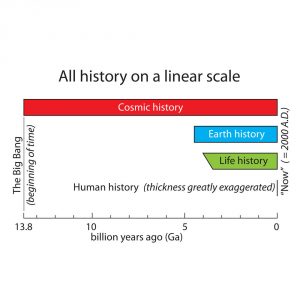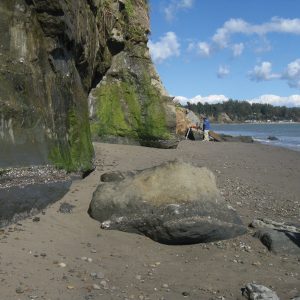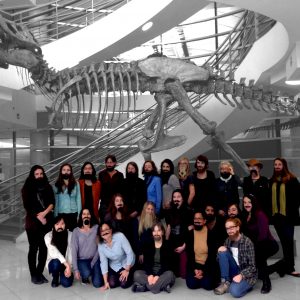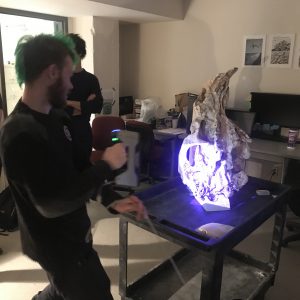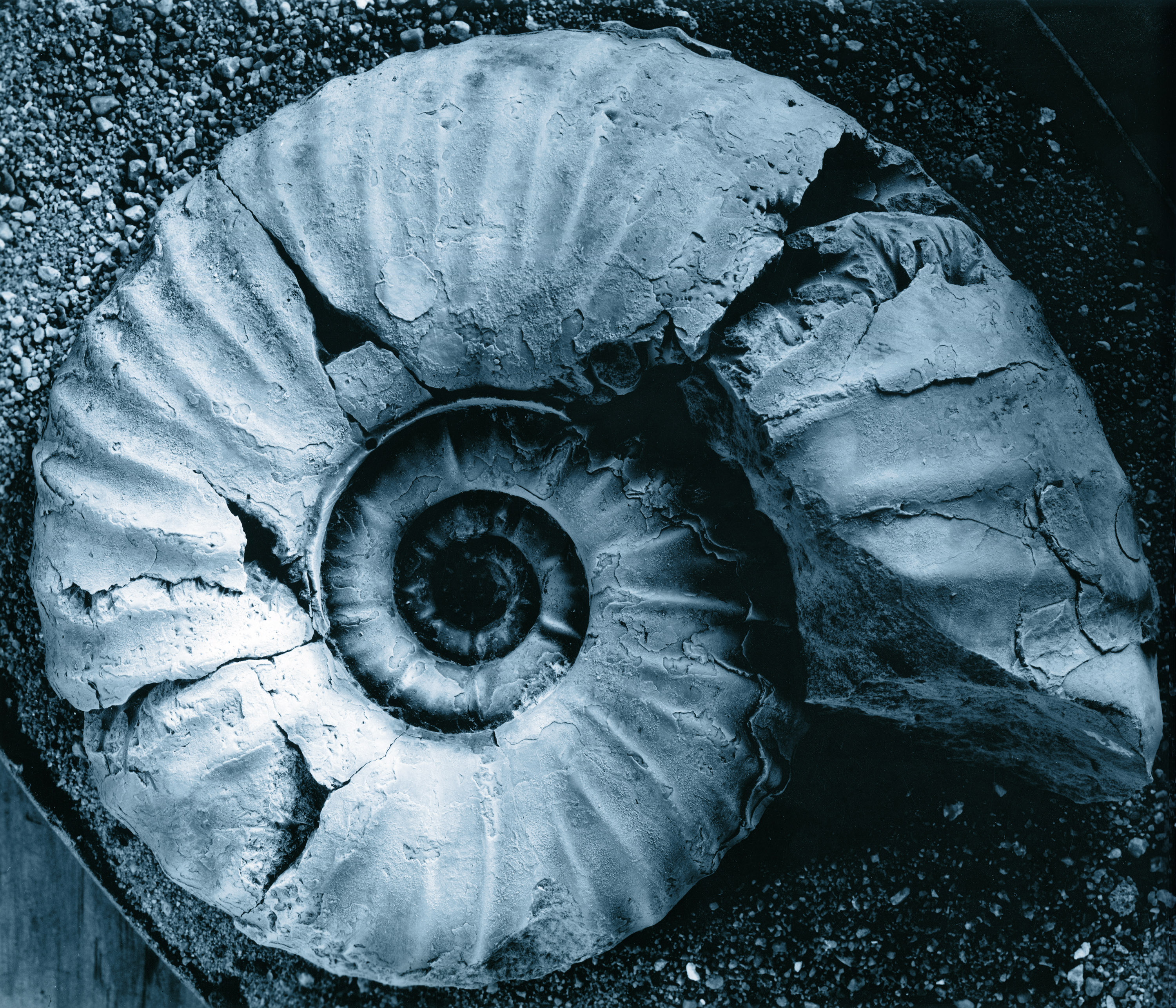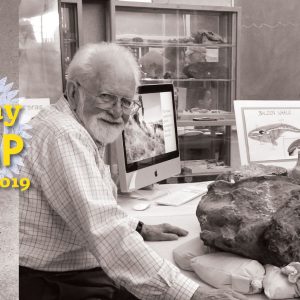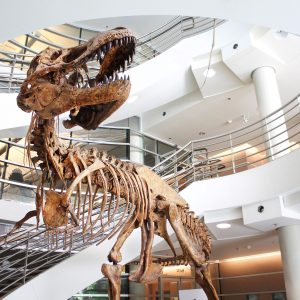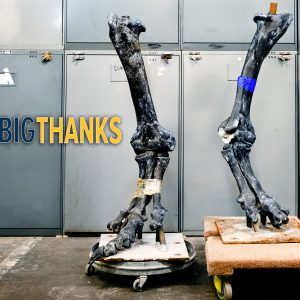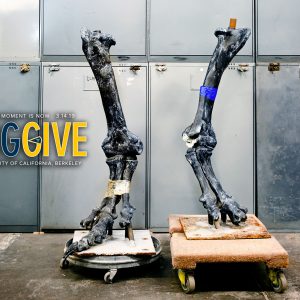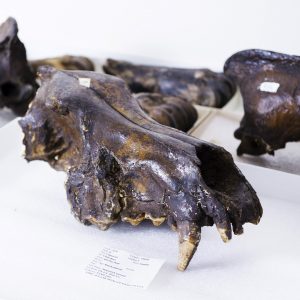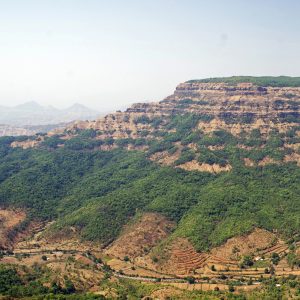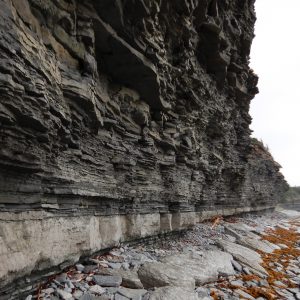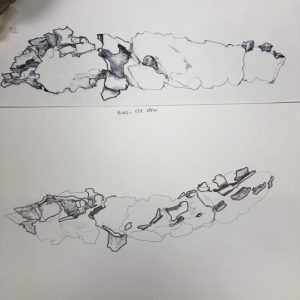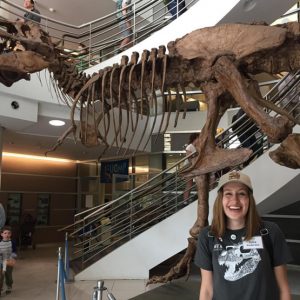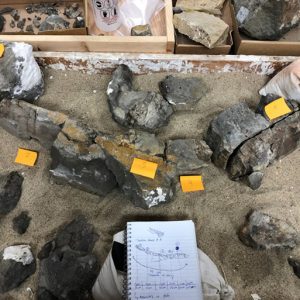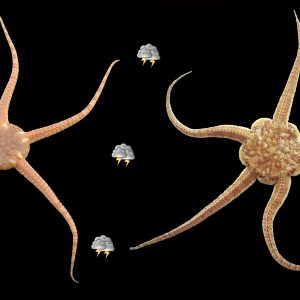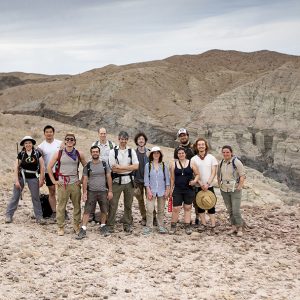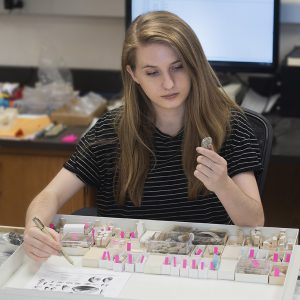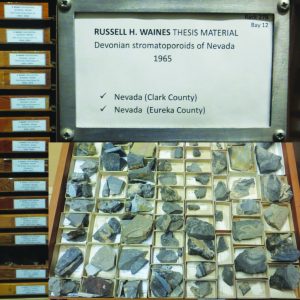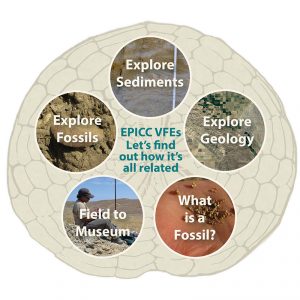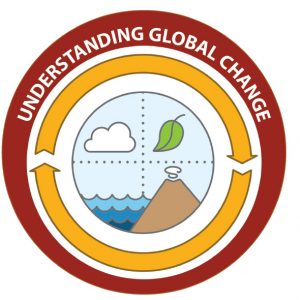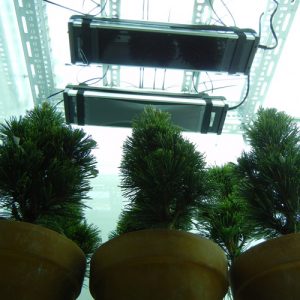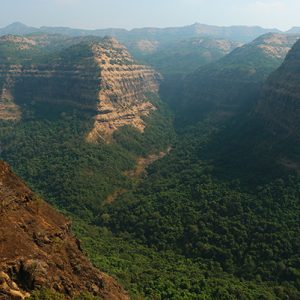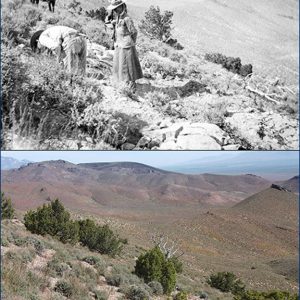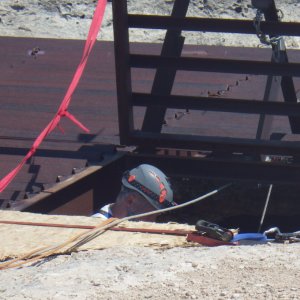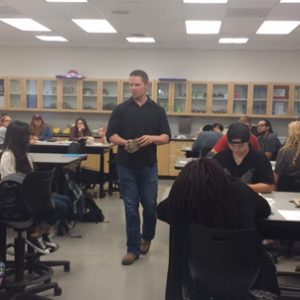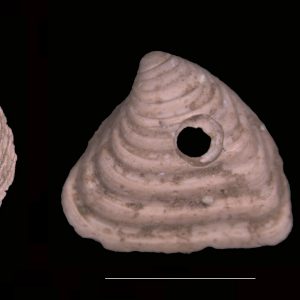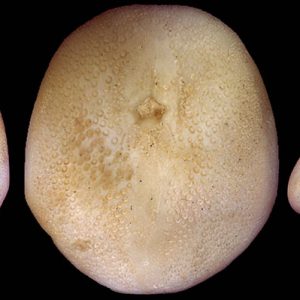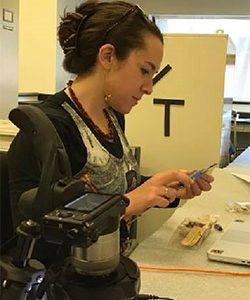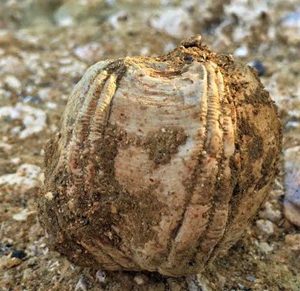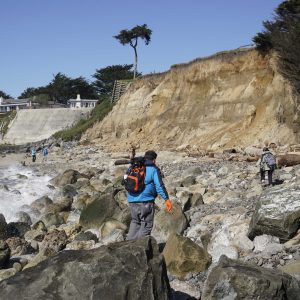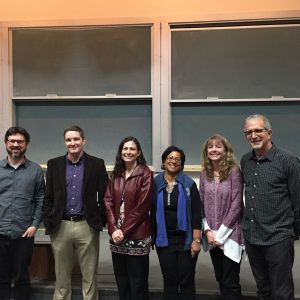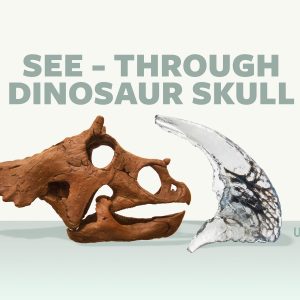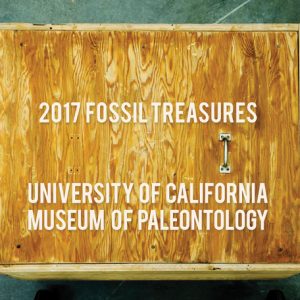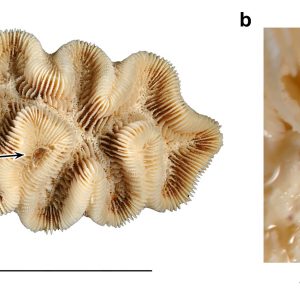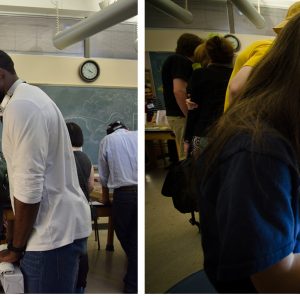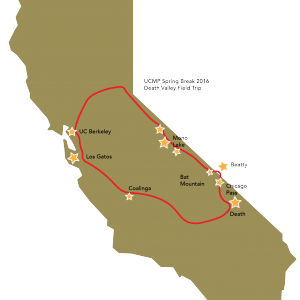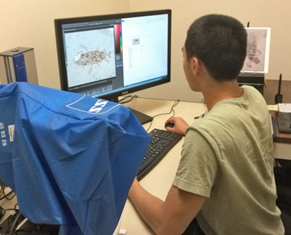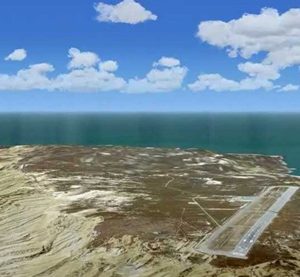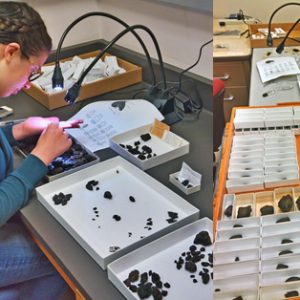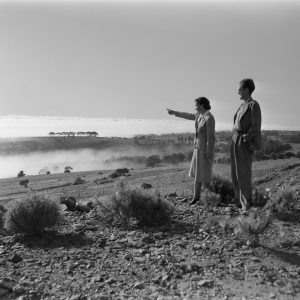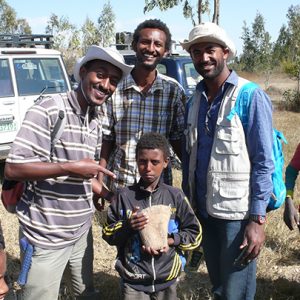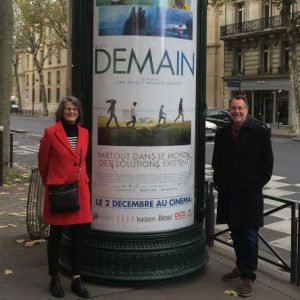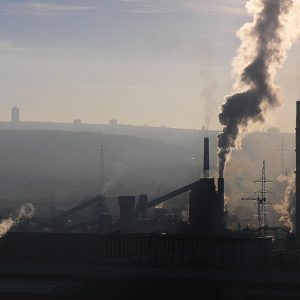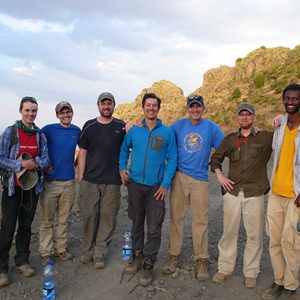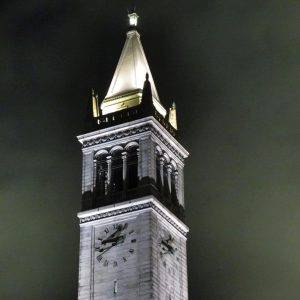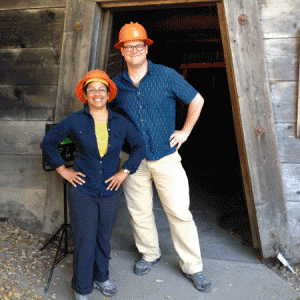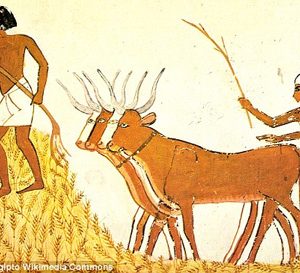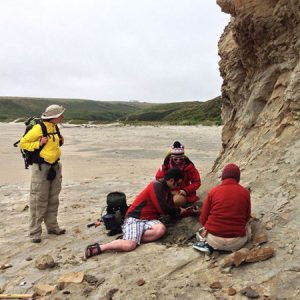Big History is the name of the fairly new effort to treat, as a single field of study, all of the past that has led to us human beings. It brings together the regimes of Cosmic, Earth, Life, and Human history, and involves both humanists and scientists. Big History is rich in insights about the human situation and how it has come to be, but it involves time scales that are enormous, compared to those we are used to, and therefore difficult to comprehend and to visualize. ChronoZoom is a way … [Read more...] about The ChronoZoom Time Atlas of Earth History and Big History
Explore UCMP teaching and learning resources
The Education and Outreach team has been busy creating interactive resources for educators and teachers. We invite you to explore some of our most recent projects: EPICC Virtual Fieldwork Experiences EPICC virtual fieldwork experiences (VFEs) provide opportunities to virtually visit classic paleontological field sites along the Pacific coast and to explore images and data from specimens that have been collected there. VFEs can combine high resolution and 3-D pictures for exploring an … [Read more...] about Explore UCMP teaching and learning resources
The Bearded Ladies Go Berkeley
In February 2015, The Bearded Lady Project film and photography team boarded a plane and flew to San Francisco. They were carrying a peculiar cargo: 30 beards and mustaches that they picked up at their regional theater prop shop. During their three days on the UC Berkeley campus at the UC Museum of Paleontology (UCMP), they interviewed and photographed about 30 UCMP paleontologists wearing beards. The participating UCMP graduate students, faculty members and museum scientists all had one thing … [Read more...] about The Bearded Ladies Go Berkeley
Researchers from Down Under come to UCMP to study our Australian fossils
Kangaroos … in Berkeley? That’s right, mate. You won’t find them leaping around the campus, though. Because they’re in the Museum of Paleontology’s fossil collections. In the 1950s, then-curator and professor Ruben A. Stirton decided to go to Australia’s Tirari Desert to look for fossil marsupials. He wanted to find evidence to answer the question of the origin and spread of marsupials through space and time. Did they come from Australia, Antarctica, or … [Read more...] about Researchers from Down Under come to UCMP to study our Australian fossils
Louderback Fund Annual Meeting
The annual business meeting of the George D. Louderback Fund's board of directors will take place Tuesday morning, May 21. If you are interested in attending please contact kpadian@berkeley.edu for details. … [Read more...] about Louderback Fund Annual Meeting
Join us for CalDay 2019!
Join us on Saturday, April 13, from 9am-4pm for Cal Day. A full schedule of events can be found on the Cal Day Events website. … [Read more...] about Join us for CalDay 2019!
NorCal Paleo registration is open!
Update April 1: registration is still open! NorCal Paleo is on Saturday, April 6. As a conference run by students for students, the focus of NorCal Paleo is on student research and professional development. NorCal Paleo provides an ideal venue for students to showcase their research, gain feedback from leading California scientists and network with both their peers and future advisors and employers. NorCal Paleo is focused on all things paleo, including paleontology, paleoecology, … [Read more...] about NorCal Paleo registration is open!
Big Thanks!
Thank you! Whether you contributed a gift, a social share, or both during the Big Give in support of UCMP research, teaching, and education, we thank you for being part of the campaign. Big Give provides an opportunity for the UC Berkeley community of alumni, students, faculty, staff, and friends to show their support for public education and world-class research. If you donated to the UCMP during the Big Give, we’ll send you a letter of thanks with more details about the impact of your … [Read more...] about Big Thanks!
UCMP Big Give on Pi Day!
It's Pi Day! We hope you will consider a gift to the UCMP during the campus Big Give, a fundraising campaign on Pi Day, Thursday, March 14. Every gift received will directly support research, teaching, and education at the UCMP. DONATE TODAY! Research in Global Change Biology * World Class Collections * Education and Outreach Workshops * Graduate Student Support * Celebrating 25 Years of Web Resources … [Read more...] about UCMP Big Give on Pi Day!
Are There Dinosaur Bones in UC Berkeley’s Campanile?
KQED's Bay Curious asks: are there dinosaur bones in UC Berkeley's Campanile? UCMP's Pat Holroyd and Leslea Hlusko answer this question. … [Read more...] about Are There Dinosaur Bones in UC Berkeley’s Campanile?
Asteroids or volcanoes?
UC Berkeley alumnus Courtney Sprain and Berkeley Geochronology Center Director Paul Renne are lead authors on a report in Science detailing new argon-argon dating of the Deccan Traps in India. Their work on the timing of the Cretaceous-Paleogene extinctions relative to the Chicxulub impact and Deccan flood basalt eruptions remains the subject of exciting, ongoing research. Read more in the Berkeley News Center … [Read more...] about Asteroids or volcanoes?
25 years of the UCMP website
Forgive us. We nearly didn’t notice until late 2018 that the year marked the 25th anniversary of the UCMP website! We decided that early 2019 was a good time to celebrate that milestone since the site is undergoing a somewhat radical redesign, only the fourth big design change in its history. We felt that this was also a good time to look back at those 25 years and pick out some of the highlights. I contacted website founders Rob Guralnick, currently Associate Curator of Biodiversity … [Read more...] about 25 years of the UCMP website
Reading between the rocks: Reinterpreting the Late Ordovician mass extinction
This past summer, I had the opportunity to conduct my first field season on Anticosti Island (Québec, Canada). Located in the subarctic of Canada, Anticosti Island preserves a 200 kilometer-long transect of ancient seafloor. Late Ordovician tropical reefs and fossils are beautifully preserved across the island in towering coastal cliffs and river canyons. The sheer size of the island is astounding, and the insight its fossil record could provide into early Paleozoic marine communities is … [Read more...] about Reading between the rocks: Reinterpreting the Late Ordovician mass extinction
Science and the arts are not incompatible
Working in a paleontology prep lab as an Anthropology major who leans towards cultural analysis was something that seemed out of left field for me. I was sitting in the corner of a lab that was strewn with rocks and fossils that I didn’t know yet were fossils for my job interview, and I was asked to give more detail on my experience in art. I didn’t really expect it to be something that would be so important to my job here at the Museum of Paleontology, but my experience outside of the “hard … [Read more...] about Science and the arts are not incompatible
Working in the UCMP fossil prep lab
Throughout my whole life I have known that I would make my passion my career someday. However, the road to success in vertebrate paleontology can be a rocky one (no pun intended), sometimes without direction or opportunity. Fortunately, the University of California Museum of Paleontology seeks to help aspiring scientists, such as myself, obtain hands-on experience in the field of paleontology! My name is Julia Anderson, and I am a senior undergraduate student, actively seeking my place amongst … [Read more...] about Working in the UCMP fossil prep lab
The Tale of Sandbox Whale
One of the exciting projects we worked on in the prep lab was the assembly of the remains of a whale skull, known as "Sandbox Whale". The project, from its plaster jacket beginnings to the finished product, relied on various skills that we have learned in the prep lab. I find that most of our projects, like the Sandbox Whale, require creativity and patience. The opening of the rigid plaster jacket required the use of wet rags to loosen the jacket so we could rip it open. This is a clever … [Read more...] about The Tale of Sandbox Whale
How often does extreme competition occur between species on the ocean floor?
Look around in nature or even in the city and you will see that organisms are not static entities, but interact with one another. Think of a robin with a worm in its beak, a tick crawling on your leg looking for a spot to puncture your skin, or two bucks fighting during the rutting season for the right to mate. The sea floor is also a place where animals search or fight for food to stay alive. On the continents, food is not unlimited; every individual tries to collect a piece of the pie (Fig. … [Read more...] about How often does extreme competition occur between species on the ocean floor?
2018 Spring Break Field Trip
Four states, nine days, 2,850 miles, 48 hours cumulative driving and enumerable sponges. The Field Methods in Paleobiology Course, also known as the 2018 Spring Break Field Trip, from March 24, 2018 to April 1, 2018, was a whirlwind tour of the Southwest with IB Faculty/UCMP Curators Cindy Looy, Ivo Duijnstee and Seth Finnegan leading a group of students, a professor on sabbatical and one staff member to West Texas to the explore the ancient Capitan Reef formation in and around Guadalupe … [Read more...] about 2018 Spring Break Field Trip
UCMP now has over 100,000 cataloged invertebrate specimens
Thanks to our recent digitization projects, UCMP now has topped 100,000 cataloged invertebrate specimens! At least 6500 of these are fossil insects, millipedes and spiders digitized by Dr. Diane Erwin and undergraduate students under Berkeley's Fossil Insect PEN. Helping make all this possible was the work by the following participants: Dr. Marwa Wafeeq Abdelkhaliq Ibraheem (Ain Shams University, Egypt; volunteer), graduate students Winnie Hsiung and Rosemary Romero, as well as undergraduate … [Read more...] about UCMP now has over 100,000 cataloged invertebrate specimens
Russell Waines’ stromatoporoid collection
Russell H. Waines was a geologist who dedicated most of his life to ancient sponges, the stromatoporoids, which were one of the most important reef builders during the Paleozoic. When I was a graduate student researcher at the UCMP in 2013, I had the pleasure of organizing this collection (Figure 1), which includes approximately 2000 fossil specimens (566 of which are registered in the UCMP database) mainly from the Devonian of Nevada, but also from Alaska, Arizona, California, New York, Utah, … [Read more...] about Russell Waines’ stromatoporoid collection
EPICC Virtual Field Experiences
The EPICC project (Eastern Pacific Invertebrate Communities of the Cenozoic) is pleased to launch the first suite of virtual fieldwork experience (VFE) modules set in the Kettleman Hills near Coalinga in Central California. Using high-resolution images, high quality panoramas, photographs, and video clips, supported by easy to understand text, we bring to life the field to museum connection for general and classroom audiences. There are five modules: Explore Geology Explore Sediments … [Read more...] about EPICC Virtual Field Experiences
Understanding Global Change Workshop, April 28-29
Understanding Global Change FREE Workshop and Materials for High School Science Educators April 28 & 29, 2018, 10:00am – 4:00pm Valley Life Sciences Hall, UC Berkeley Space is limited! Registration closes April 20, 2018 or earlier if fills. To register, please contact Jessica Bean jrbean@berkeley.edu. The University of California Museum of Paleontology is hosting a teacher professional development program to support the teaching of the global change topics. We are recruiting 15 teacher … [Read more...] about Understanding Global Change Workshop, April 28-29
UCMP paleobiologists shed new light on ozone shield failure, forest sterility, and mass extinction
Members of the Looy Lab - Jeff Benca, Ivo Duijnstee, and Cindy Looy - co-authored a paper in the journal Science Advances. It details exciting new findings from experimental research on the effects on UV-B induced stresses on forest decline during the end-Permian extinction. Read more in the University press release. View the video: https://youtu.be/bz9je0Me4AU … [Read more...] about UCMP paleobiologists shed new light on ozone shield failure, forest sterility, and mass extinction
A new destination for disaster enthusiasts
The Cretaceous-Paleogene (K-Pg or K-T) mass extinction — the event in which the non-avian dinosaurs, along with about 70% of all species in the fossil record went extinct — was probably caused by the Chicxulub meteor impact in Yucatán, México. However, scientists have long wondered about the massive volcanic eruptions that were occurring in northwestern India at about the same time, the Deccan Traps. Volcanism is the likely cause of several prior mass extinctions, with no convincing evidence for … [Read more...] about A new destination for disaster enthusiasts
Exploring Annie Alexander’s Saurian Expedition of 1905
In 1905 UCMP benefactress Annie Alexander financed and took part in an expedition to the West Humboldt Mountains of Nevada to collect vertebrate fossils in the Triassic limestones. The crew came home with portions of some 25 ichthyosaur skeletons. Alexander put together a scrapbook containing her chronicle of the trip and many photographs; the scrapbook was given to UCMP following Alexander’s death in 1950 and is one of the most treasured items in the museum’s archives. Up until now, the … [Read more...] about Exploring Annie Alexander’s Saurian Expedition of 1905
A Pleistocene pit-stop: the Barnosky lab excavates Natural Trap Cave, Wyoming
You might think that an 85-foot-deep hole where a bunch of horses, wolves, camels, elephants, and plenty of other animals accidentally plummeted to their death over tens of thousands of years would have enough red flags to make going into it yourself sound like a bad idea. But what if these unfortunate critters could tell you what their life was like and how they died? What if they could give you a warning about their death in a warming world after the last ice age and what it means for life in … [Read more...] about A Pleistocene pit-stop: the Barnosky lab excavates Natural Trap Cave, Wyoming
Guest lecturing at Los Medanos Community College
Roughly 10 million students attend American community colleges each academic year, accounting for more than a third of all American undergraduates. Relative to their peers at four-year institutions, community college students are much more likely to come from lower income households, much more likely to be members of an underrepresented minority group, and much more likely to be a first-generation college student. I was lucky enough to spend three years as a faculty member of a Denver-area … [Read more...] about Guest lecturing at Los Medanos Community College
What do traces of predators tell about ancient marine ecosystems?
Reconstructing biotic interactions is crucial to understand the functioning and evolution of ecosystems through time, but this is notoriously difficult. Competition in deep time cannot be readily seen except for overgrowth of one organism by another under the assumption that both were alive at the same time. Parasites usually do not preserve because they are soft-bodied and tend to be small so that they are not spotted easily. The most abundant evidence of biotic interactions comes from the … [Read more...] about What do traces of predators tell about ancient marine ecosystems?
Understanding the evolutionary history of the cassiduloid echinoids
It is widely recognized that major groups evolve at different rates, in their own evolutionary trajectories. Some evolve fast and are very diversified while others evolve slowly and may never experience an explosion of diversity throughout their trajectory. One of my research interests is understanding the pace of morphological evolution through time, and the organisms selected to investigate this topic are the irregular echinoids. Commonly known irregular echinoids include the sand dollars … [Read more...] about Understanding the evolutionary history of the cassiduloid echinoids
Surprising new finds in museum specimens
I am very grateful to have received a UCMP Graduate Student Research Award via the Barnosky Fund in April 2016. I used these funds to collect pilot data from major natural history museum collections around the country for my dissertation research. My research investigates responses in fossil animal communities to climate change over long time intervals. We need historical data about the affects of climate change on animals in the past in order to anticipate these affects on animals in the … [Read more...] about Surprising new finds in museum specimens
A Hitchhiker’s Guide to the Pleistocene Sea
Using Fossil Whale Barnacles to Reconstruct Prehistoric Whale Migrations Baleen whales, as we know them today, lead lives that are largely defined by their annual migrations. Every year, whales spend their winters breeding and reproducing in tropical waters, then travel to poleward feeding areas each summer. For North Pacific humpback whales, winter breeding areas cluster around Central America and Hawaii, and then they travel to the Gulf of Alaska to feed in the summer (small numbers also … [Read more...] about A Hitchhiker’s Guide to the Pleistocene Sea
Bringing the field to our users through EPICC’s Virtual Field Experiences
Ever wonder where fossils from the UCMP were collected or want to know more about the geological setting of UCMP field areas? Curious about why an area looks the way it does? These questions and others are driving the development of Virtual Field Experiences (VFEs) associated with the EPICC project (Eastern Pacific Invertebrate Communities of the Cenozoic, http://epicc.berkeley.edu). Together with EPICC partners from the Paleontological Research Institution (PRI), UCMP Assistant Director Lisa … [Read more...] about Bringing the field to our users through EPICC’s Virtual Field Experiences
A Successful Short Course
On March 4th the popular UCMP annual short course featured dinosaurs this year: "A new look at old bones: Insights into dinosaur growth, development and diversity." The short course is an ideal way to connect public audiences, particularly teachers and science educators, with current research in paleontology and Earth history. Past short courses have had regional environmental themes (SF Bay ecosystems) or focused on patterns of evolution and extinction. After Lisa White kicked off the course … [Read more...] about A Successful Short Course
Support UCMP’s See-Through Dinosaur Skull Project
Through a crowdfunding initiative with UC Berkeley, the UCMP would like your support in creating the first ever "see-through" dinosaur skull! UCMP is a leader in paleontological research and with your support of this project, museum paleontologists will further explore how dinosaur skulls grow and develop as they change size and shape. With this crowdfunding project, UCMP hopes to raise enough funds to CT scan, volume render and 3D print the first ever see-through dinosaur skull, starting with … [Read more...] about Support UCMP’s See-Through Dinosaur Skull Project
2017 Fossil Treasures Calendar Available Now!
Revealing the collections at Regatta The 2017 Fossil Treasures Calendar is a bit of a 'behind-the-scenes' look at the work done at UCMP and celebrates some impressive fossil specimens we hold at the Regatta Facility in Richmond, CA. We have both fossils large in size and large in number and featured in this calendar are the large antlers from the giant elk, hundreds of vials of microfossils and even dinosaur fossils formerly on display at Cal Academy, namely the legs of the Allosaurus. So get … [Read more...] about 2017 Fossil Treasures Calendar Available Now!
Cryptic caves and paleoecology of crustaceans in Cenozoic coral reefs
Just some months ago on a Saturday in July, I had the pleasure of snorkeling above the only coral reefs in the continental Unites States. These reefs in southern Florida still harbor many species of corals, fish, and other animals including crustaceans such as crabs, shrimps, and lobsters. These decapods are difficult to spot while snorkeling, but that does not mean they are not there. Their usually small size in this landscape of incredibly variable topography ensure they are able to hide … [Read more...] about Cryptic caves and paleoecology of crustaceans in Cenozoic coral reefs
Cal Day 2016
The 2016 Cal Day, held on April 16, 2016, was my first time experiencing Cal Day and I was also the one planning it. Cue scary music! Thanks to the UCMP community for pitching in their time and efforts, it went off without a hitch and was fun experience all around. As a newer member of the UCMP community, I only knew about CalDay through photos and the well-documented newsletter postings by my predecessor Dave Smith. Annually on Calday, the campus opens up to the public and shares all … [Read more...] about Cal Day 2016
A photo essay: Death Valley Field Trip, Spring Break 2016
Learning in the Field The 2016 UCMP Spring Field Trip was my first foray into exploring the world of paleontology in the field. Curators/professors Seth Finnegan and Cindy Looy brought 10 graduate students, postdocs, and a few beguiled tag-alongs like myself to various localities throughout central and southern California and Nevada. Field trips like these are important learning opportunities for future paleontologists and geologists, and a way to use practical skills in the field and see … [Read more...] about A photo essay: Death Valley Field Trip, Spring Break 2016
Hiep Nguyen’s UCMP undergraduate research experience: “Scentless in Nevada”
This past year, I’ve been working with UCMP Senior Museum Scientist Diane M. Erwin to identify a new fossil species of scentless plant bug (family Rhopalidae) from a Miocene lakebed deposit in Stewart Valley, Nevada. The study developed as a result of my participation as an Undergraduate Research Apprentice (URAP) in UC Berkeley’s Fossil Insect Digitization PEN project (BFIP) funded by the National Science Foundation. The BFIP project is part of the Fossil Insect Collaborative Thematic … [Read more...] about Hiep Nguyen’s UCMP undergraduate research experience: “Scentless in Nevada”
Terraces through time: Reconstructing fossil beaches in southern California
San Nicolas Island is a strange, far-away place very familiar to a surprising number of Californians. Thanks to Scott O'Dell's Island of the Blue Dolphins, this island — the most remote of California's eight Channel Islands — and it's native Nicoleño people have been engrained into the imaginations of many elementary school children. My own mind was captivated by this story in the fourth grade when I had the opportunity to conduct fieldwork on San Nicolas Island with Daniel Muhs (U.S. Geological … [Read more...] about Terraces through time: Reconstructing fossil beaches in southern California
Meschelle Thatcher’s UCMP undergraduate research experience: Beetles in Brea!
As an English major, I didn’t really know what to expect when I first started my URAP (Undergraduate Research Apprenticeship Program) appointment for the UC Museum of Paleontology Fossil Insect PEN (Partner to an Existing Network) funded by the National Science Foundation. All I knew was that I’d be handling fossils, and that struck the scientific chord in my imagination in perfect harmony. The Pleistocene Rancho La Brea tar pits in southern California are best known for their extinct exotic … [Read more...] about Meschelle Thatcher’s UCMP undergraduate research experience: Beetles in Brea!
Our journey from the UCMP to South Africa to study fossil monkeys
At the time we got involved in what has now become for us - the South Africa project - one of us (Tesla) was soon-to-be a second year graduate student, and the other (Marianne) was about to start her senior year as an undergraduate student here at UC Berkeley. We began working together in the UC Museum of Paleontology (UCMP) during the summer of 2013, making our way through a massive project and cataloguing exceptional fossil material collected during the UC Africa Expedition of 1947 and 1948. … [Read more...] about Our journey from the UCMP to South Africa to study fossil monkeys
A first: Sauropod bones found in Ethiopia!
Assistant Director Mark Goodwin and his project collaborators (see Feb. 1 blog post) made a surprising discovery while collecting microvertebrates, turtles, and fish. Within a small area of exposure in the Late Jurassic Agula Shale in the Tigray Province, just south of Mekele, Ethiopia, were the first sauropod dinosaurs ever reported from Ethiopia! The team found mostly partial bones and bone fragments, and the local school kids delighted in holding Ethiopia's first sauropod dinosaur bones. … [Read more...] about A first: Sauropod bones found in Ethiopia!
Solutions to climate change inspire French film
In December 2015 UCMP faculty curator Tony Barnosky and Stanford paleoecologist Liz Hadly attended The United Nations Conference on Climate Change to premiere a movie opening in Paris. The movie, Demain, was inspired by the 21-authored study that produced a 2012 Nature paper on tipping points. The film opens with Tony and Liz summarizing global change issues facing the world today. Tony states, "the movie is all about solutions and is very uplifting." It features solutions being implemented in … [Read more...] about Solutions to climate change inspire French film
The Anthropocene has come of age
Research by Faculty Curator and Professor Tony Barnosky and the Anthropocene Working Group continues to support the strong need for designating a distinct geological epoch, the Anthropocene. Landscape-altering human activities leave behind distinctive evidence (plastics, aluminum, concrete, black carbon, among others) in the sedimentary record. The group has received widespread media attention and recent articles in the New York Times, Los Angeles Times, and Washington Post demonstrate the … [Read more...] about The Anthropocene has come of age
Assistant director reunites with UCMP alumni in Ethiopia to investigate Mesozoic ecosystems
Assistant director Mark Goodwin is in Ethiopia for several weeks as part of a collaborative project with UCMP alums Greg Wilson (University of Washington) and Randall Irmis (Utah). Together with colleagues from the University of Oklahoma, Addis Ababa University, and Mekelle University in Ethiopia, the team is investigating non-marine Mesozoic ecosystems from the Northwestern Plateau, Ethiopia. Mark reports "we had great success in the Late Jurassic units and it is gratifying working with … [Read more...] about Assistant director reunites with UCMP alumni in Ethiopia to investigate Mesozoic ecosystems
Bones in the Belltower, a Berkeley Science Review feature by Sara ElShafie
The Fall 2015 issue of the Berkeley Science Review features an article by Sara ElShafie, a UCMP graduate student in the Padian Lab, on the McKittrick tar seep fossils that have been stored in the Campanile since the 1930s. The convergence of an Institute of Museum and Library Services grant to the UCMP to clean and catalogue more the 12,000 specimens in the collection and the centennial celebration of the Campanile in 2015 shined a spotlight on these unique fossils. In interviews with UCMP … [Read more...] about Bones in the Belltower, a Berkeley Science Review feature by Sara ElShafie
UCMP’s Lisa White highlights the geology of California in NOVA series
Making North America, a 3-part NOVA series that originally aired on PBS in November 2015, is a richly illustrated journey through the geological history of the North American continent. UCMP Director of Education and Outreach Lisa White appears in episodes one (Origins) and three (Human) in segments shot in northern California. Lisa joins paleontologist and Director of the Smithsonian National Museum of Natural History Kirk Johnson, the series host and narrator, along the San Andreas fault in … [Read more...] about UCMP’s Lisa White highlights the geology of California in NOVA series
Humans began altering natural world 6,000 years ago
Scientists have found an abrupt change about 6,000 years ago in how terrestrial plant and animal species coexisted, right about the time human populations were ballooning and agriculture was spreading around the world. The findings suggest that human activity had reached a tipping point where hunting and farming were impacting the natural world in irreversible ways — changes that have continued to increase to this day. The researchers, including UC Berkeley’s Cindy Looy, an assistant professor … [Read more...] about Humans began altering natural world 6,000 years ago
National Fossil Day website features research by UCMP and partners
The UCMP partnership with Point Reyes National Seashore and the National Park Service continues to thrive and fossil discoveries made as a result of this partnership are highlighted in a previous post. Lillian Pearson, who works part-time with Museum Scientist Erica Clites cataloging specimens from the Point Reyes National Seashore, is the lead author on an article posted in honor of National Fossil Day (October 14, 2015) describing Cenozoic life and landscape features. National Fossil Day … [Read more...] about National Fossil Day website features research by UCMP and partners
